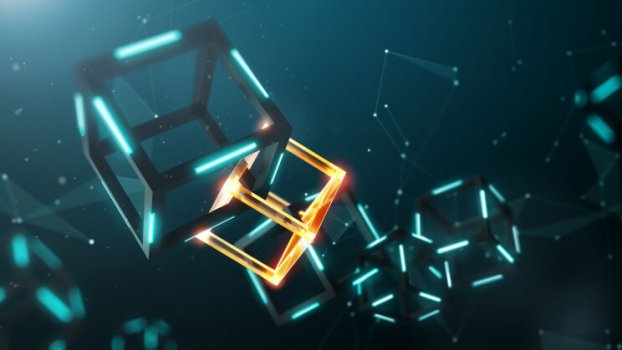What’s do Decentraland’s stylish “live” DJ parties (which even the Omicron virus couldn’t stop), Beeple’s $69 million NFT artwork, and the cryptocurrency hype that’s going on across the globe? The answer is - blockchain, an emerging technology that promises to change the world by making finance - and other things - more decentralized. However, the big question is how blockchain will bring this drastic change, and is this technology really worth the attention it's getting?
What is blockchain?
Blockchain refers to digital ledgers or records of transactions that can be viewed by all the users on a network and cannot be tampered with; it is also called distributed ledger technology (DLT). The sole aim of blockchain is to store and share data. Blocks contain the records of valid transactions that have taken place on the network.
In a blockchain, a request for a transaction is made, the system then authenticates the request. Then, a 'block' representing the transaction is created and forwarded to every node (i.e., participant) on the network. The nodes then compete to validate the transaction, using complex algorithms. On successful validation, the block is added to the existing blocks, thus forming a chain. The process of competing to authenticate and complete a block is known as “mining.”
The update is transmitted across the network, and the transaction is completed. The transactions happening on the blockchain are secured using a cryptographic technique called hashing.
Hashing uses complex algorithms to create a string of characters (called the “hash”) from any piece of data. Each block stores its own hash and the hash of the block before it. If anyone tries to tamper with a block, or swap in a fake block, the hash would change, breaking the chain. In cryptocurrency, each time a hash is mined and a block is added to the ledger, the "miner" also earns a token, or part of a token, such as a Bitcoin.
The decentralization comes from the fact that the data is spread out among several nodes, in different locations. This creates redundancy and also means that if somebody tries to change a record at one location, the other nodes would not be altered.
Continue reading: https://interestingengineering.com/what-is-blockchain
What is blockchain?
Blockchain refers to digital ledgers or records of transactions that can be viewed by all the users on a network and cannot be tampered with; it is also called distributed ledger technology (DLT). The sole aim of blockchain is to store and share data. Blocks contain the records of valid transactions that have taken place on the network.
In a blockchain, a request for a transaction is made, the system then authenticates the request. Then, a 'block' representing the transaction is created and forwarded to every node (i.e., participant) on the network. The nodes then compete to validate the transaction, using complex algorithms. On successful validation, the block is added to the existing blocks, thus forming a chain. The process of competing to authenticate and complete a block is known as “mining.”
The update is transmitted across the network, and the transaction is completed. The transactions happening on the blockchain are secured using a cryptographic technique called hashing.
Hashing uses complex algorithms to create a string of characters (called the “hash”) from any piece of data. Each block stores its own hash and the hash of the block before it. If anyone tries to tamper with a block, or swap in a fake block, the hash would change, breaking the chain. In cryptocurrency, each time a hash is mined and a block is added to the ledger, the "miner" also earns a token, or part of a token, such as a Bitcoin.
The decentralization comes from the fact that the data is spread out among several nodes, in different locations. This creates redundancy and also means that if somebody tries to change a record at one location, the other nodes would not be altered.
Continue reading: https://interestingengineering.com/what-is-blockchain

